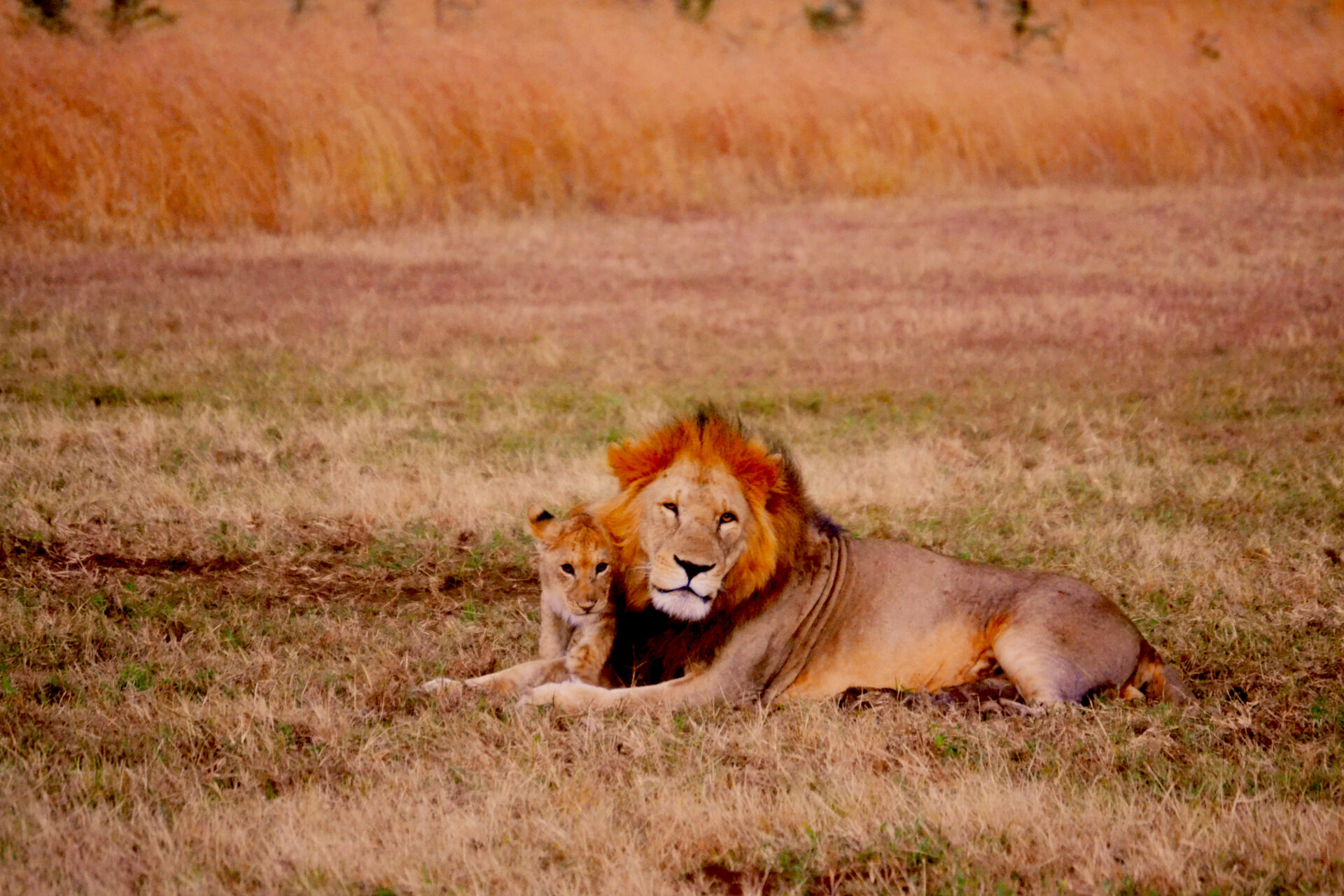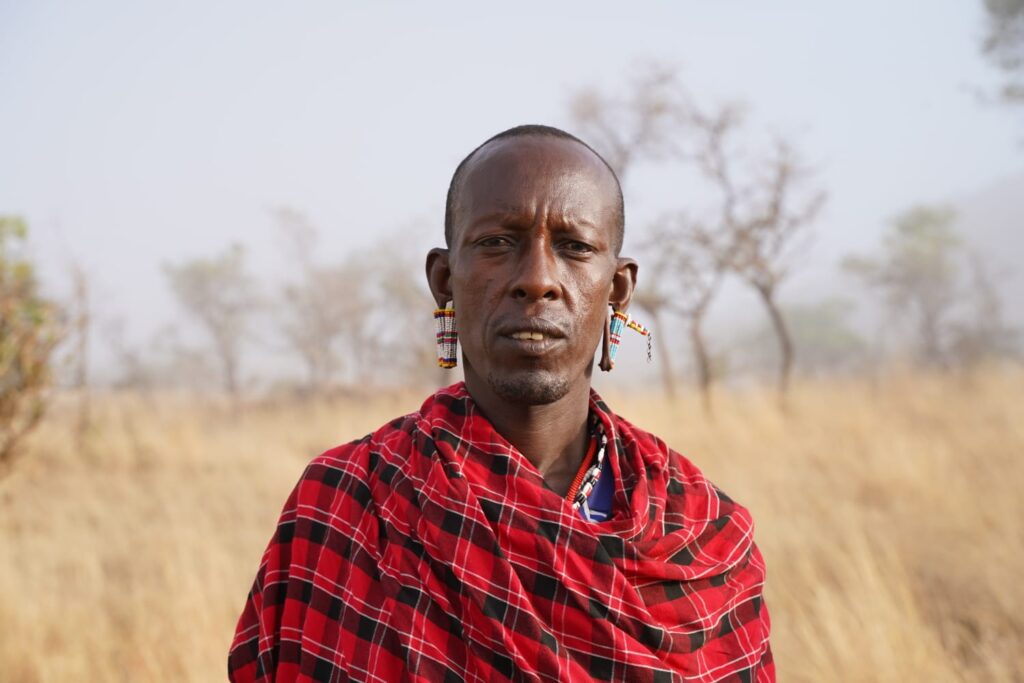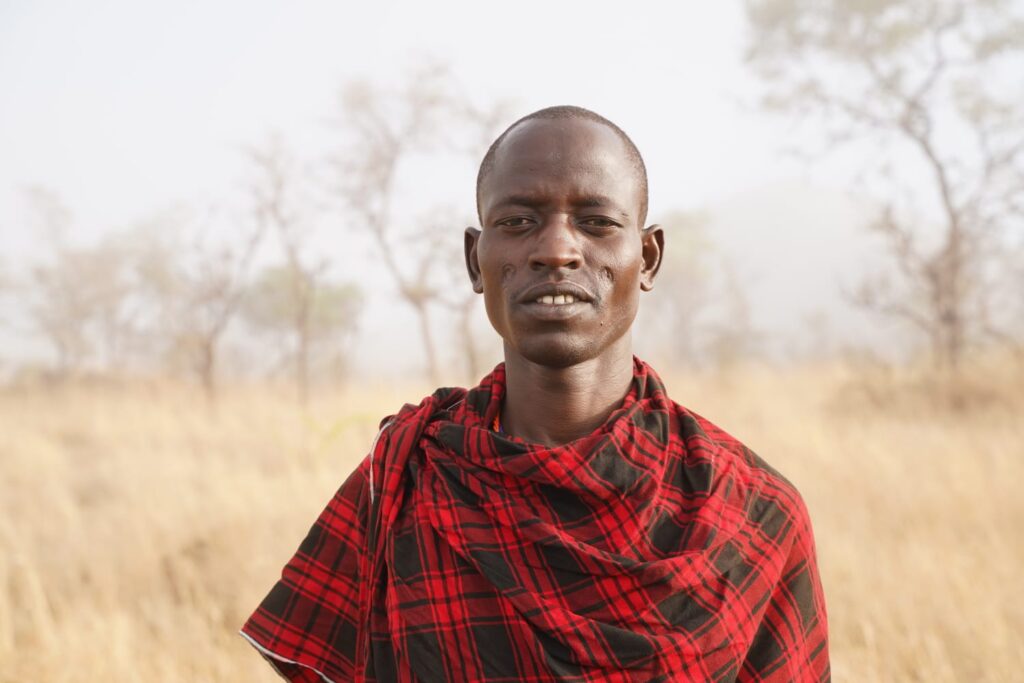In Maasai culture, it is a rite of passage for a Moran (Warrior) to kill a lion. This has changed when conservation came. Now you don’t have to kill a lion to be called a Moran, you can earn that title by protecting them.



Name: Miseiyeki Rimba
Community: Kuku Group Ranch, Iltilal.
Occupation: Simba Scout, 15 years
Q: What inspired you to become a Simba Scout?
A: “I was inspired by climate change. In the year 2009 we had a severe drought that killed almost all our livestock and wildlife. We had to move for over 500 kms in search of water and pasture. As a Maasai Moran, we used to kill lions for cultural reasons, I was motivated to protect the lions for a benefit instead. Having no livestock left due to drought I bought the idea of conservation and it worked. Now for 15 years, I have been helping my community members to protect the lions to realize these benefits.”
Q: Why do you think it’s important to protect wildlife?
A: “Wildlife is our heritage. As the Maasai community, we have always coexisted peacefully with wildlife because we respected these animals. We do not eat bush meat and take pride when we see livestock grazing together with the wildlife (herbivores). I didn’t get a chance to get a formal education but because of wildlife and its benefits, I have a paid salary that enables me to take my children to school.”
Q: What would you like to share with the world about the important work you do?
A: “Times have changed, and we are going through tough times as a community because of climate change. Our survival is dependent on our natural resources, therefore let us guard them in every way possible. Everyone has a responsibility, mine is taking care of lions, everyone should identify theirs and do it diligently.”

Name: Orkewa Ntanin
Community: Kuku Group Ranch, Iltilal
Occupation: Simba Scout, 11 years
Q: What inspired you to become a Simba Scout?
A: “What inspired me to become a Simba Scout is my passion for wildlife. I always enjoyed watching wildlife as a young boy while grazing livestock. Being a Simba Scout for me felt like an interesting job because I was used to living, tracking, and learning the behavior patterns of different animals. From being a Simba Scout, I have watched the lion population increase significantly in the Kuku Group ranch where I am from.”
Q: Why do you think it’s important to protect wildlife?
A: “It is important to protect wildlife because their protection helps our development. Local and international tourists do not visit our land to see our livestock, they visit to see wildlife. They pay some amount of fee to see the wildlife which has helped in developing our communities in different ways. For example, we have compensation programs where livestock is compensated when they are killed by wildlife. This is money from wildlife, through such programs coexistence between wildlife and livestock is enhanced.”
Q: What would you like to share with the world about the important work you do?
A: “We are conserving wildlife species for our benefit and that of generations to come. I always like to tell my community members that livestock is individually owned and thus benefits an individual, but wildlife is for the community and fruits are visible and enjoyed by all, so let’s strive to conserve our wildlife.”

The Maasai Wilderness Conservation Trust (MWCT) employs a dedicated team of 18 Maasai Warriors (Moran), who day in and day out monitor GPS-collared lions and other wildlife species in the Chyulu Hills. Data collected is analyzed and used to gauge various aspects of different wildlife species like their eating habits and the prey selection of lions. The monitoring is also a very significant measure to mitigating human-wildlife conflict within the local Maasai communities.
The program started in 2006 with two Simba Scouts as a way to create an avenue for young Morans to have job opportunities and to instill a notion of the importance of protecting wildlife and conservation. The idea was to transform the traditional Maasai rite of passage of killing a lion to the noble act of being their guardians.
